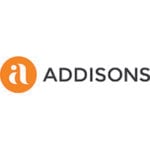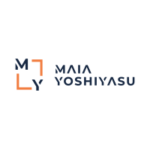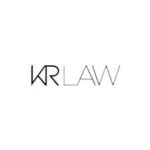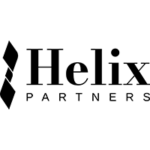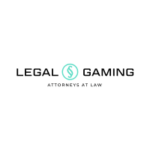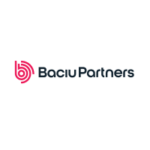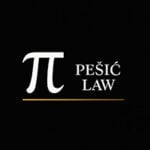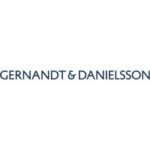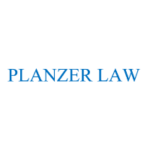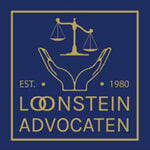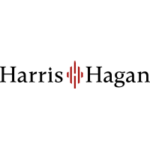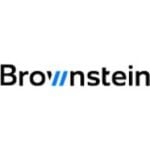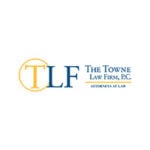-
What is the legal definition of gambling?
Article 25 of Law 4002/2011 provides that a game is considered a game of chance where (a) its result, at least partially, relies on luck and b) the player elects to undertake financial risk by a wager or bet to achieve direct or indirect financial gain from the game’s result.
-
What legislation applies to gambling? Please provide a summary of the legal/regulatory framework.
The main Greek legislation governing gambling includes:
- Law 4002/2011 (Part D, as amended), which established the foundation for regulating both land-based and online gambling activities.
- Law 2206/1994 (as amended), which initially regulated casino operations
- Law 4512/2018 (Chapter B Art. 357-378) reforming the casino licensing regime and eliminated the closed number of casino licenses
The regulatory gambling regime is further detailed by decisions of the Ministry of Finance, including Decision No 79835/2020 regulating the conduct of online gambling, Decision No 56580/2022 regulating suitability of key actors, Decision No 509/1/2020, regulating affiliate marketing, Decision No 79292/2020 regulating commercial communications, Decision 79841/2020 regulating on line gaming technical specifications, Decision 79300/2020 on changes to the Central Information System, Decision 14/2/2012 regulating lotteries; and Decisions 79314/2020 and 107/5/2014 regulating VLTs. The gambling regime is further regulated by directives issued by the Hellenic Gaming Commission (HGC).
-
Which body/ies regulate gambling?
The HGC is the regulatory body with oversight over gambling activities in Greece. Established under Art. 28 of Law 4002/2011, the HGC primary responsibilities include:
- The issuances of licenses for the conduct of games
- Certification of online games, systems and gaming machines
- Monitoring the financial management of games
- Establishing measures to protect minors and vulnerable groups
- Combating unlawful gaming
- Monitoring the implementation of anti-money laundering legislation
- Issuing directives monitoring technical standards
- Monitoring and enforcing compliance with gambling laws and regulations
- Implementing responsible gambling measures
The HGC is an independent administrative authority, enjoying full administrative and financial independence and autonomy.
-
Are licences available? If so: a) What is the duration of a licence? b) What types of licences are available? c) Are there different types of licences for B2C and B2B operators? d) Do software suppliers need to be licensed?
Provided the eligibility criteria are met, licenses are available.
What is the duration of a license?
The term of a license is contingent on the gambling activity being licensed:
- The term of a casino license is 15 years for the simple type and 30 years for broad spectrum type
- Online Β2Β and B2C licenses are issued for 7 years
- Affiliate marketing licenses have no expiry date
What types of licenses are available?
Greece offers various types of gambling licenses, including:
- Casino licenses are distinguished as:
– Simple type for casino facilities that may also offer 3 or more-star accommodation and other facilities (e.g. shops, restaurants, etc.).
– Broad-spectrum for casinos facilities with 5 or more-star accommodation and with other facilities (e.g. shops, restaurants, etc.) and at least a special touristic facility (e.g. conference hall, golf course, ski slopes, wellness unit, etc.) - Online gambling licenses (B2C) are distinguished as:
– Sports betting (Type 1) which includes fantasy sports
– Other online games of chance (Type 2) which include casino games/poker - Licenses for facilities offering gaming machines
- A Suitability License is also required for B2B companies (hardware manufacturers, software providers and suppliers, and affiliates) and all technical means and materials used for gaming (e.g. games, systems, gaming machines) are also subject to certification by the HGC.
Are there different types of licenses for B2C and B2B operators?
Both B2C and B2B operators require licenses, but the requirements for the licenses differ.
Do software suppliers need to be licensed?
Gaming software suppliers must be licensed and their products certified and approved by the HGC. The HGC maintains registries of certified games, systems, equipment, and suppliers.
-
Are any types of gambling products prohibited?
Prohibitions do exist on certain products, including:
- Gambling services offered without appropriate license
- Those targeting minors/vulnerable groups or encouraging irresponsible gambling or addiction
- Gambling on events or outcomes prohibited by regulation
- Certain games, types of betting and lotteries for which the Greek State has granted concessions to certain operators (e.g. horserace betting, KINO, scratch, lotteries).
-
What is the headline application procedure? Please include any eligibility and other application requirements, including approximate application costs and any need to establish a local presence.
The application procedure varies by license type but generally the steps are as follows:
- Preparation of application and supporting documents:
- Submission of application with supporting documents to the HGC with payment of the application fees.
- Initial eligibility assessment by the HGC.
- Detailed evaluation: For casino licenses, this typically involves a two-stage process as outlined in Law 2206/1994, with an initial qualification phase followed by a competitive bidding process.
- License award: Successful applicants are granted licenses subject to payment of license fees.
- Go Live: HGC authorization for the license holder to go live subject to its fulfillment of further technical requirements.
Based on Law 4002/2011 as amended, the following are the key legal requirements for obtaining a gaming license in Greece:
Legal Entity Requirements
- Legal Form: Applicants must be legal entities with a registered office or permanent establishment in an EU/EEA member state.
- Minimum Capital: A minimum paid-up capital of €200,000 is required for on line gaming license applicants.
- Criminal Record: Board members, partners, and those exercising management and administration of the appliacnatl entity must not have been convicted of serious crimes including fraud, embezzlement, forgery, bribery, money laundering, or gambling-related offenses.
Financial Requirements
- Bank Guarantee: For online gambling licenses, a bank guarantee of €500,000 must be deposited from a credit institution legally established an EU/EEA member state.
- License Fee: The license fee must be paid either in full or in four equal annual installments, with the first installment due before the license is issued.
- Financial Documentation: Applicants must submit published financial statements for the last three years, tax clearance certificates, and social security clearance certificates.
Technical Requirements
- Domain Name: For online gambling, operations must be conducted through websites with a “.gr” domain name suffix and each website can host exclusively one license of each type.
- Server Location: Applicants must establish a physical “safe server” within Greece, connected to the HGC.
- Technical Certification: Gaming equipment and systems must be certified by the HGC.
Operational Requirements
- Responsible Gaming Measures: Operators must implement measures to protect players, including self-exclusion options and deposit limits.
- Anti-Money Laundering Protocols: Mandatory implementation of customer identification (KYC) measures and transaction monitoring.
- Player Protection: 24-hour customer service and dispute resolution mechanisms must be available.
- Fair Gaming: Random number generators (RNGs) must be periodically tested to ensure fair outcomes.
Application Process
- Blacklist Check: Entities included in the blacklist of unlicensed gambling providers within the year preceding their application are not eligible for a license.
- Documentation: Applications must include bankruptcy certificates, liquidation certificates, and other documents specified in the Gaming Regulation.
- Suitability Assessment: The Hellenic Gaming Commission (EEEP) verifies that the applicant meets all requirements before issuing the license.
Application costs vary according to license type, with casino licenses involving substantial fees determined through competitive bidding.
For online gaming B2C licenses, there is a €10,000 application fee. A Type 1 license costs €3,000,000 and a Type 2 license costs €2,000,000.
B2B license applications also entail a fee ranging from EUR250 for hardware manufacturers and up to EUR 5,000 for online content providers/aggregators. B2B license holders must also pay an annual fee ranging from EUR500 to EUR25,000 to remain on the HGC’s registry.
-
Do individuals within the business need to be personally licensed or authorised? If so, please provide headline requirements.
Yes, individuals providing critical functions must be personally approved by the HGC, including:
- Board members/Directors
- Shareholders with significant holdings and their ultimate beneficial owners
- Personnel providing critical functions
The approval process involves background checks focusing on:
- Criminal record verification
- Financial integrity assessment
- Professional qualifications and experience
-
Is advertising of gambling permitted and, if permitted, how is it regulated?
Advertising gambling is permitted but is subject to the restrictions set out in Decision No 79292/2020 regulating commercial communication. Restrictions include:
- Prohibitions on advertising targeting minors or encouraging excessive gambling
- Prohibition on providing inducements to individuals to gamble
- Requirements for the inclusion of responsible gambling messages
- Limitations on when and where gambling advertisements may appear
- Specific rules for different media channels (television, radio, online, land based)
The HGC has issued detailed directives regulating commercial communication and monitors the same. Violations of the applicable commercial communication can result in significant penalties.
-
Are marketing affiliates permitted? If so, are they licensed or regulated?
Marketing affiliates are permitted and are licensed by the HGC. Affiliates must:
- Not be on HGC’s Blacklist.
- Must exclusively promote licensed, gambling services
- Comply with the same commercial communication restrictions applicable to gaming providers
- Adhere to responsible gambling requirements
The HGC monitors affiliate marketing activities and can take enforcement action against affiliates breaching the relevant regulations.
-
What are the penalties for offering, facilitating or marketing unlawful gambling, and can the gambler be penalised for participating in unlawful gambling?
The Greek regulatory regime sets out significant penalties for unlawful gambling activities.
Penalties for operators and facilitators include:
- Inclusion on the HGC’s “Blacklist”
- Administrative fines (Art. 51 of Law 4002/2011) ranging from €1,000-€2,000,000 or a percentage of gross revenue depending on the severity and frequency of the violation and/or temporary suspension of the license for up to 3 months and/or license revocation. These sanctions also apply to unlawful marketing of gambling.
- Sealing of unlicensed gaming facility and the blocking of websites offering unlicensed gambling services
- Administrative fines of €5,000 -€7,000 per incident for failure to use/monitor player’s personal gaming card and recidivism may result in suspension or revocation of license.
- Fines of €100,000 – €500,000 fine and temporary or permanent of license suspension. For failure to install the required technical gaming infrastructure connecting the central information system to the supervisory and control information system accessible to the HGC.
- Operators who fail to install technical infrastructure for conducting games of chance that connects to the HGC’s Central Information Systems are subject to fines ranging from €100,000 to €500,000, as well as temporary suspension or permanent revocation of their license.
- Operators who conduct games of chance without using and checking players’ individual cards can be fined €5,000 to €7,000 per violation. Recidivism can lead to license suspension or revocation and temporary or permanent closure of the establishment.
- Per Article 51(5) of Law 4002/2011, internet service providers with registered offices or permanent establishments in Greece are prohibited from allowing access to illegal online gambling providers listed in the HGC’s blacklist. Violations result in administrative fines set out in the Gaming Regulation.
- Extensive criminal sanctions (Art. 52 of Law 4002/2011) are provided for the organization and conduct of gambling services without a license and/or certification as well as for commercial communications that promote unlicensed gambling. Indicatively:
– Where the infraction is conducted using gaming machines, a misdemeanor 3-5 year sentence and a €100,000 -€200,000 fine per gaming machine is imposed.
– Where the infraction pertains to on-line gaming, a 3-5 year misdemeanor sentence and a €200,000 – €500,000 fine is imposed.
– Where the illegal games that are conducted are games of chance, a felony 10-20 year sentence and a €700,000 fine is imposed, irrespective of the manner or means by which the game were conducted.
– Organizing games without license and/or certifications, is punishable by a 1-5 year misdemeanor sentence and a €70,000 -€150,000 fine and where the games are games of chance, a 3-5 year misdemeanor sentence and a €200,000 fine is imposed.
– Undertaking commercial communications for unlicensed games of chance, either as an advertiser or the advertised, is subject to a 2-5 year misdemeanor sentence and a €100,000-200,000 fine.
Where the infringer is a legal entity, criminal sanctions are imposed on the individual Board or management members.
For players:
- The personnel and management members of B2C gaming providers are prohibited from participating in games offered by their employer and violators are subject to administrative fines ranging from €1,000-€2,000 per incident.
- Players participating in unlicensed gambling are subject to a 3-month prison sentence and a €5,000-€20,000 fine.
- Players using surrogates to gamble are subject to a prison sentence of up to 2 years and a €100,000-€200,000 fine as are the surrogates used
- Winnings from illegal gambling operations are subject to confiscation
-
Briefly detail key requirements for licensees.
To maintain a gaming license for gambling activities in Greece, operators must comply with specific legal requirements that cover various aspects of operations, compliance, and ongoing obligations, including:.
Organizational and Operational Requirements
Throughout their operation gaming operators must maintain:
- The organizational, financial and infrastructure specifications required for the initial license
- Appropriate management and executive staff qualifications
- Reliability and suitability of shareholders
Operators must implement appropriate policies and procedures to ensure compliance with legal obligations, including rules for conducting transactions in casinos.
Suitability Requirements for Key Personnel
Persons performing Critical Functions must be reported to the HGC and approved and they must maintain integrity, training, experience, and knowledge to fulfill their responsibilities
Technical Compliance
Gaming operators must:
- Inform the HGC of any new Technical Means and Materials for gaming operations and maintain certification of the same.
- Ensure ongoing compliance with technical specifications
- Submit to regular technical inspections and certifications
Acquisition of Shares -Corporate Restructuring Requirements
Per Art. 244 of Law 5222/2025, any corporate restructuring of a gaming license holding company requires HGC approval. Art. 47 of Law 4002/2011 provides that the intent of acquire a stake equal to or greater than 2% in an on-line or gaming machine licensed operator must be previously notified to the HGC. Any change in control of the licensed operator requires prior HGC approval, failing which is null and void.
Ongoing Compliance Obligations
Operators must:
- Maintain financial stability and submit regular financial reports
- Ensure continuous compliance with gaming regulations
- Implement responsible gaming measures
- Maintain technical standards and security protocols
- Submit to regular audits and inspections by the HGC
- Report to the HGC gross gaming revenues, players tax withheld, and the taxes paid monthly.
Payment of Annual Fees
License holders must pay, where applicable, annual fees to maintain their registration in the HGC Registry, failing which their license/certification may be revoked.
-
Briefly detail key anti-money laundering requirements.
Gaming operators in Greece are subject to comprehensive Anti-Money Laundering (AML) requirements established through various laws and ministerial decisions. These requirements align with EU AML Directives and international standards to ensure the integrity of the gaming sector. Law 4557/2018, “Prevention and Suppression of the Legalization of proceeds of Crime and Terrorist Financing” is the primary AML legislation and specific gambling related measures are provided in Decision 554/5/2021 of the HGC.
Operators are required to adopt a risk-based approach tailored to their business model, customer base, products, and delivery channels. License holders must:
- conduct a Business Risk Assessment, to identify exposure to ML/TF risks.
- Develop risk classification criteria.
- Apply enhanced due diligence for high-risk scenarios (e.g. politically exposed persons (PEPs)).
Customer Due Diligence: Gaming operators must verify customer identities and monitor their activities. Operators must implement Know Your Customer (KYC) procedures and customer due diligence in line with the AML/FT regulations. Per Article 13 of Decision 554/5/2021, upon registration, player accounts are given a provisional status, pending full verification. During the provisional status, players may deposit in total up to 800 euros and may not withdraw winnings. The verification of a player’s identity must be carried out within 30 days from the creation of the account. If the player’s identity has not been verified upon expiration of that time limit, the account is placed in a “Blocked” status. Electronic Player Accounts must include identity verification mechanisms as specified in Article 29 of Law 4002/2011
Gaming Operators must adopt both ordinary and enhanced due diligence measures as appropriate. Ordinary due diligence measures include:
- Collecting and verifying each player’s personal details using documents and/or reliable and independent sources
- Verify whether the Player is from a high-risk or non-cooperative jurisdiction or appears on sanctions or restrictive measures lists
- Verify that the player is not a PEP, and, if the player is determined to be a PEP apply appropriate due diligence measures.
- Monitor player activity for changes in player data, or a change in the transactional behavior or the playing activity.
- Ensure that payments of winnings above the limits set out in the Regulation are paid only through Payment Service Providers, following certification and verification of the Player’s identity and verification of the Player’s identity. as the beneficiary of the relevant payment account
Enhanced Due Diligence measures include:
- The collection of additional information about the Player, the origin of funds and the source of wealth.
- Approval by a Senior Executive Officer for the commencement or continuation of the Business Relationship with the Player.
- Strengthening the business relationship through detailed monitoring of gaming activity and related transactions, with more frequent and systematic checks. This ensures that all transactions align with the operator’s knowledge of the player’s identity, professional background, gaming behaviour, payment methods, and overall risk profile.
Other AML requirements for Gaming Operators include:
- Monitoring to detect suspicious transactions and unusual gambling patterns and reporting suspicious activity or transactions to the authorities without delay.
- Maintaining comprehensive records that allow the HGC to verify compliance with regulations. Customer and transaction records must be maintained for a period of 5 years from the termination of the business relationship with the player.
- Appointing an AML/FT Compliance Officer per Article 4 of Decision 554/5/2021 and Decision 56580 EX 2022 and ensuring the regular training of its staff particularly those with ML/FT duties.
- Designing and implementing policies, procedures and controls to effectively identify, mitigate and manage AML/FT risks (Art. 3.1, Dec. 554/5/2021).
- Operating an independent internal audit department to review the effectiveness of the License Holder’s AML program.
- Cooperate fully with regulatory and law enforcement authorities to enforce AML/FT provisions.
-
Briefly detail key responsible gambling (or safer gambling) requirements.
Licensed gaming operators as part of their regulatory obligation must implement comprehensive responsible gambling measures s. These primarily involve:
1. Player Protection Measures
Licensed operators must implement effective player protection systems that include:
- Mandatory Player Limits: Operators must ensure that players set mandatory limits at the beginning of their first gaming session, including:
– Maximum deposit limits
– Maximum loss limits
– Time limits for participation in games - Maximum Stakes: Operators must comply with the maximum bet stakes provided by the regulation.
- Player Information: Operators must provide clear information to players about:
– Game rules and winning probabilities
– Risks associated with excessive gambling, including financial loss and addiction
– Responsible gambling messages must be displayed on screen during gameplay in a way that interrupts the game and is clearly understood by players - Responsible Gaming messages and warning logos must be prominently displayed.
- Support Resources: Readily accessible information and links to support organizations, self-assessment tools and the national helpline must be prominently features.
2. Age Verification and Restrictions
- Strict Age Limits: Individuals under 21 years of age are prohibited from entering casino premises or participating in on-line gaming.
- Verification Procedures: Operators must implement robust age verification systems to prevent underage gambling
3. Self-Exclusion and Player Protection Registry
- Self-Exclusion Options: Operators must maintain systems allowing players to exclude themselves from gambling activities
- Exclusion Registry: Operators must maintain a registry of excluded players and ensure these individuals cannot access their gambling services
4. Complaint Handling
Operators are required to implement effective and adequate complaint handling systems and process complaints in a fair and timely manner which are monitored by HGC
5. Ongoing Monitoring and Reporting
- Regular Assessments: Operators must conduct regular assessments of their responsible gambling measures
- Reporting Requirements: Regular reports must be submitted to the HGC
6. Regulatory Oversight
The HGC issues regulations and guidelines on responsible gambling, monitors the operator’s compliance, conducts inspections and audits and imposes sanctions for non-compliance with responsible gambling requirements.
- Mandatory Player Limits: Operators must ensure that players set mandatory limits at the beginning of their first gaming session, including:
-
Briefly detail shareholder reporting and approval threshold(s).
Initial approval: The HGC evaluates stakeholders that, directly or indirectly, hold a stake or voting rights exceeding 10% of the entity applying for a gaming license, up to the ultimate beneficial owners (UBOs), in the course of the licensing process. Such stakeholders and their UBOs must be approved by the HGC and registered in a respective HGC registry. For institutional investors, the HGC will only assess the suitability of the individuals managing the institutional investor.
Change notifications: Any transfer of a stake that could lead to a direct or indirect change of control of the licensed company requires prior approval from the HGC, failing which such transfers are considered null and void.
Thresholds. Per Art. 47 of Law 4002/2011, any disposition of a stake equal to or greater than 2% of an on line gaming operator or gaming machines operator must be previously notified to the HGC. For casino enterprises, a stakeholder who intends to transfer a stake such that their participation in the casino licensed company falls below the thresholds of 10%, 20%, 33%, 50%, or 66.7% of the company’s capital or voting shares, or if the company ceases to be a subsidiary of the transferor, must notify the HGC at least 1 month prior. Similarly, a stakeholder who intends to acquire equity that would result in their stake exceeding the thresholds of 10%, 20%, 33%, 50%, or 66.6% of the casino company’s capital or voting shares, or when the casino license holder becomes a subsidiary, must notify the HGC at least 1 month prior. Notwithstanding the above, if a transfer of a stake in a gaming licensed operator that could lead to a direct or indirect change in control, requires previous HGC approval, failing which the transfer is null and void.
Ongoing Disclosure Obligations: Per Ministerial Decision 56580 EX 2022, license holders must notify the HGC of any changes related to the approval of suitability of shareholders within 20 days from the date the change occurred and submit all necessary supporting documentation.
Disclosure requirements: Stakeholders in a license holder are required to notify the license holder of any changes to the information based on which their suitability was approved within 5 days of the date the change occurred.
Ongoing monitoring: The HGC maintains registries of approved shareholders and has broad supervisory powers to ensure compliance with gaming regulation. Non-compliance can result in administrative sanctions under Article 51 of Law 4002/2011.
Corporate Restructuring: Per Article 28 of Law 4002/2011, the HGC must approve any corporate restructuring of any licensed gaming operator.
The specific thresholds and requirements are detailed in the licensing conditions for each type of gambling operation and in the regulations issued by the HGC.
-
Briefly detail the regulator’s enforcement powers, including sanctions.
The HGC has comprehensive supervisory and enforcement powers, combining administrative, financial, and criminal sanctions to ensure full regulatory compliance. Specifically, it can:
- Monitor and audit all gaming activity (real-time and retrospective).
- Impose warnings, fines, license suspensions, or revocations and close establishments operating without a license sealing the premises.
- Impose sanctions for breaches of AML/CFT and responsible gaming regulation
- Maintain and enforce the Blacklist.
- Escalate serious cases to criminal prosecution.
The HGC collaborates with other authorities such as the Hellenic Police for enforcement actions. Per Article 52A of Law 4002/2011, the Hellenic Police conducts inspections of gambling operations that lack licenses or certification, while the HGC is responsible for inspecting licensed establishments, gaming machines, and games.
-
What is the tax rate?
As per Article 56 of Law 4389/2016, the Greek State is entitled to 34.5% and the HGC to 0.5% of the gaming operator’s gross gaming revenue.
Additionally, gaming operators are required to pay Greek corporate income tax.
Per Law 5219/2025, players’ winnings are taxed according to a progressive scale as follows:
A. Winnings from Lotteries are taxed:
- Up to 100 tax free
- 1001-1000: 10%
- 1,000.01 and over 15%
B. Winnings from bets are taxed:
- up to €100.00 is tax free
- From €100.01 to €200: 2.5%
- From €200.01 to €500: 5%
- Over €500.00: 7.5%
C. Winnings from gaming conducted in sessions (e.g. casino games, poker slot machines) are taxed per session as follows:
- up to €100.00 is tax free
- From €100.01 to €500: 1.5%
- Over €500.01: 20%
-
Are there any proposals for changing gambling laws and regulations in the next 12-24 months? If so, please provide an overview of the proposed changes and likely timing.
The HGC is planning an extensive overhaul of gaming regulation to address inconsistencies, gaps and functionality problems in the existing regime as well as to codify the plethora of rules and regulations in a unified text. Work on this project commenced as of autumn 2025 by the new Chairman of the HGC, Mr. Anthony Vartholomeos.
-
What key regulatory developments are proposed or on the horizon in the next 12-24 months?
No reform is currently anticipated.
-
Do you foresee any imminent risks to the growth of the gambling market in your jurisdiction?
Several potential risks could impact the growth of the Greek gambling market:
- Regulatory complexity: The extensive regulatory framework established by Law 4002/2011 and subsequent ministerial decisions creates a complex compliance environment that may deter new market entrants. In this context, the HGC is planning an overhaul of the gaming regime to provide greater clarity and functionality.
- Lack of effective enforcement against unlicensed operators: The HGC calculates the existing ratio between legal and illegal gambling in the Greek market to be 50%-50%. Enforcement measures against unlicensed operators must be improved.
- Market saturation: With established operators already holding significant market share, new entrants may face challenges in gaining traction.
- Advertising restrictions: The strict regulations on gambling advertising and marketing, as outlined in Article 29 of Law 4002/2011, may limit operators’ ability to promote their services effectively and is somewhat outdated. Moreover, existing commercial communication regulations are somewhat outdated and do not effectively address more innovative advertising and marketing channels like the use of influencer sector.
- Responsible gambling requirements: Increasingly stringent responsible gambling measures may impact revenue growth as operators implement mandatory player protection tools.
- Excessive Taxation- The existing 35% participation of the Greek State and HGC on gross gaming revenue (GGR) is extremely high in comparison with other European regulated markets. Likewise, the players’ tax is considered excessively onerous. Excessive taxation of GGR jeopardizes the viability of gaming operators in the Greek market, and excessive taxation of players’ winnings incentivizes participation in illegal gambling.
-
If a gambling start-up was looking for a jurisdiction in which to commence its activities, why would it choose yours?
A gambling start-up might choose Greece as its base of operations due to a combination of legal, economic, and market factors. The country offers an established regulatory framework under Law 4002/2011, administered by the Hellenic Gaming Commission (HGC), which ensures legal certainty and transparency for operators. As a member of the European Union, Greece also provides access to the broader European market while maintaining compliance with EU regulatory standards. The licensing process is clear and well-defined, allowing new entrants to navigate a structured path toward market entry.
Moreover, Greece’s growing online gambling sector presents significant opportunities for digital-first operators seeking expansion in a regulated environment. The country’s robust tourism industry further enhances the potential for land-based gambling operations, particularly in high-traffic tourist destinations. Complementing these advantages, Greece’s regulatory system sets out detailed technical standards and certification requirements, fostering fair competition, while its established payment infrastructure facilitates compliant gambling transactions in accordance with anti-money laundering regulations.
Greece: Gambling Law
This country-specific Q&A provides an overview of Gambling laws and regulations applicable in Greece.
-
What is the legal definition of gambling?
-
What legislation applies to gambling? Please provide a summary of the legal/regulatory framework.
-
Which body/ies regulate gambling?
-
Are licences available? If so: a) What is the duration of a licence? b) What types of licences are available? c) Are there different types of licences for B2C and B2B operators? d) Do software suppliers need to be licensed?
-
Are any types of gambling products prohibited?
-
What is the headline application procedure? Please include any eligibility and other application requirements, including approximate application costs and any need to establish a local presence.
-
Do individuals within the business need to be personally licensed or authorised? If so, please provide headline requirements.
-
Is advertising of gambling permitted and, if permitted, how is it regulated?
-
Are marketing affiliates permitted? If so, are they licensed or regulated?
-
What are the penalties for offering, facilitating or marketing unlawful gambling, and can the gambler be penalised for participating in unlawful gambling?
-
Briefly detail key requirements for licensees.
-
Briefly detail key anti-money laundering requirements.
-
Briefly detail key responsible gambling (or safer gambling) requirements.
-
Briefly detail shareholder reporting and approval threshold(s).
-
Briefly detail the regulator’s enforcement powers, including sanctions.
-
What is the tax rate?
-
Are there any proposals for changing gambling laws and regulations in the next 12-24 months? If so, please provide an overview of the proposed changes and likely timing.
-
What key regulatory developments are proposed or on the horizon in the next 12-24 months?
-
Do you foresee any imminent risks to the growth of the gambling market in your jurisdiction?
-
If a gambling start-up was looking for a jurisdiction in which to commence its activities, why would it choose yours?
